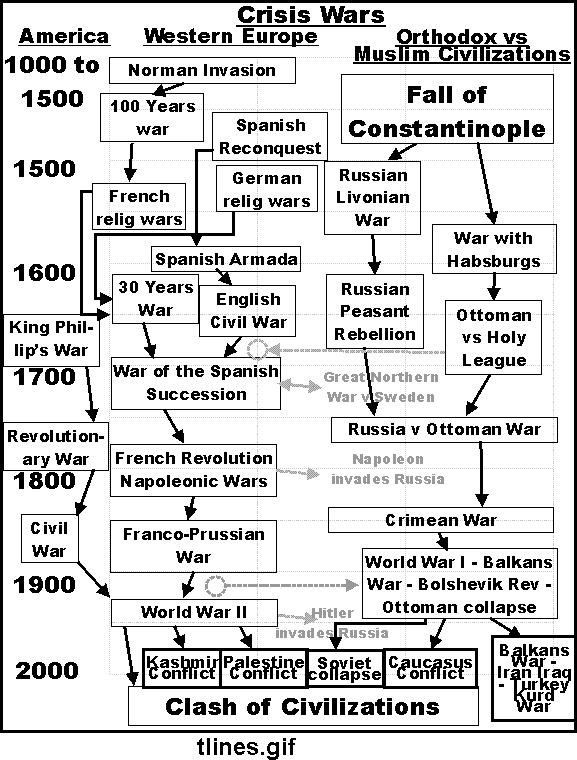Actually, Putin is an early Nomad by timing. Let me repeat an
analysis I've posted before.
Shamil Basayev is the Chechen terrorist who's responsible for the
death of hundreds, almost half children, at the school in Beslan,
North Ossetia in Russia a few weeks ago.
In doing an analysis and reading news stories at the time, I came
across this paragraph:
> Born in Chechnya in 1965, Basayev was raised by a generation that
> had just returned to the region after being exiled by Stalin to
> Kazakhstan and Siberia.
Now, that exile took place in 1944. So although Russia's previous
crisis war was WW I and the civil war ending in 1928, Chechnya's
previous crisis war was presumably this massive exile.
That makes Basayev an early Nomad: 1965 = 1944 + 21.
So I took a look at some other people of this type:
Abu Musab al-Zarqawi - Jordan - 1966 - 1949 + 17
Osama bin Laden - Saudi Arabia - 1957 = 1932 + 25
Putin - Russia 1952 = 1928 + 24
Hitler Germany - 1889 = 1870 + 19
Stalin Russia - 1879 = 1856 + 23
Trotsky Russia - 1879 = 1856 + 23
Mao is a mid to late Nomad:
Mao 1893 = 1862 + 31
Other crisis era leaders were also early Nomads:
Lincoln 1809 = 1783 + 26
FDR 1882 = 1865 + 17
Saddam Hussein - Iraq - 1937 = 1921 + 16
This analysis appears to indicate that early Nomads are the most
likely to become world leaders - the best and the worst.
